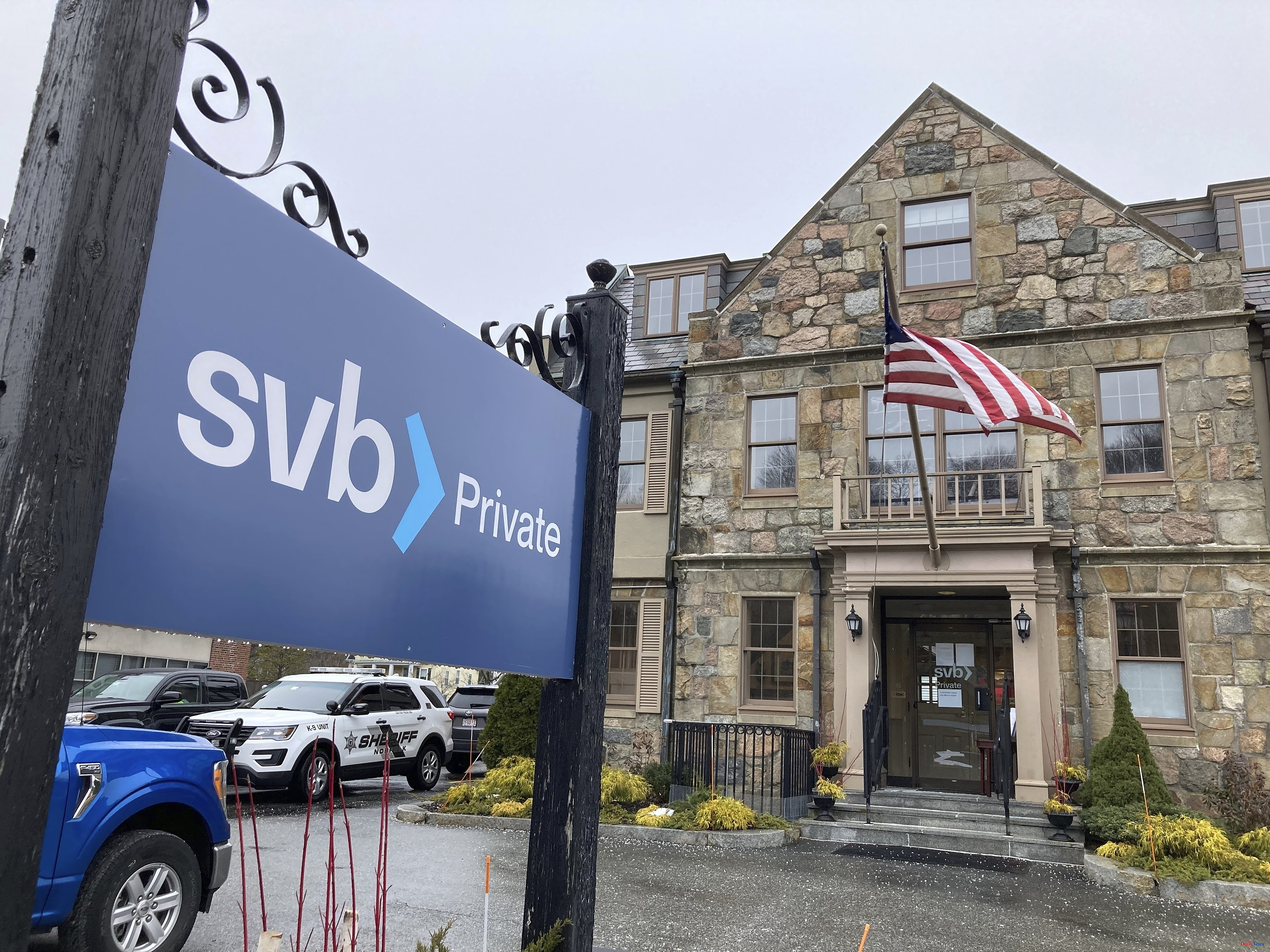After a weekend of internal political struggle, the Government of Joe Biden surrendered to the evidence last night (early today in Spain): the collapse of the country's sixteenth bank by assets, Silicon Valley Bank (SVB) , runs the risk of spreading to the entire US and global financial system.
So, overcoming their previous reluctance, the authorities announced that all the bank's deposits are guaranteed by the state, including those that exceed $250,000 (234,000 euros), which is formally the maximum that the authorities cover. In addition, the Federal Reserve launched what is in practice a disguised bailout of the banks by creating a financing 'window' in which it will accept as collateral a series of bonds whose value has plummeted due to the rise in interest rates. of the last year.
The key is that the 'Fed' will accept these bonds not at their market price, but at par ('par value'), that is, the equivalent of their nominal price. This means that, for the central bank, these financial instruments have not fallen in price. Thus, the Bank Term Financing Program (BTFP), which is the name of that 'window', acts as if, literally, the interest rate hikes that are 'crunching' many Americans they would not have passed. To achieve that treatment you have to be a bank.
That is why the Biden government did not want to guarantee the deposits of more than 250,000 in SVB: the Executive does not want to convey the impression that Silicon Valley managers and venture capital funds that invest in technology and biotechnology companies - the two main clients of the intervened bank - receive special treatment. Even more so when in the mecca of technology there is a tendency to profess the so-called 'libertarian' creed - that is, the non-intervention of the State in private activity - when the economy is doing well, and to demand that the Government intervene to save 'systemic risks' ' - especially if it's your money at risk - when things go wrong. Although there are numerous 'start-ups' among SVB's clients, there are also giants such as Roku - the company most affected by the crisis - and Etsy, and large investors in cryptocurrencies. The large venture capital funds that finance start-ups in Silicon Valley also have large financial risks attached to SVB.
However, the risk of contagion is too high. The Federal Deposit Guarantee Corporation (FDIC), which is the US equivalent of the Spanish Deposit Guarantee Fund, intervened last night another bank, Signature Bank, whose risk profile is similar to that of SVB: large investments in cryptocurrency and technology companies, and a million-dollar customer base. A staggering 90% of Signature Bank's deposits are not FDIC-insured, and 20% of the capital on deposit with the bank is in cryptocurrencies, assets that have been crushed by rising interest rates despite fanaticism. investor from their advocates, many of whom hope that such electronic currencies will take down central banks. Exactly the same central banks that are now going to save them, since 100% of the Signature's deposits have also been guaranteed by the State.
Meanwhile, fear of the crisis has spread. The French authorities tried last night to reassure investors in that country, while in the United Kingdom, the HSBC bank, the largest in Europe, announced on Monday morning the purchase of the UK subsidiary of Silicon Valley Bank (SVB). for the symbolic amount of one pound.
"This ensures that customer deposits are protected and they can bank as normal, without taxpayer support," Britain's Chancellor of Finance Jeremy Hunt said.
But market sentiment has changed. The collapse of the SVB has prompted traders to bet on a more gradual tightening of US interest rates, and more intense monetary easing once US inflation is under control. Thus, the Federal Reserve is now expected to start lowering rates in September, and to do so on at least one other occasion before March 2024. This new analysis has led the dollar to fall against the main Asian currencies.
According to the criteria of The Trust Project












